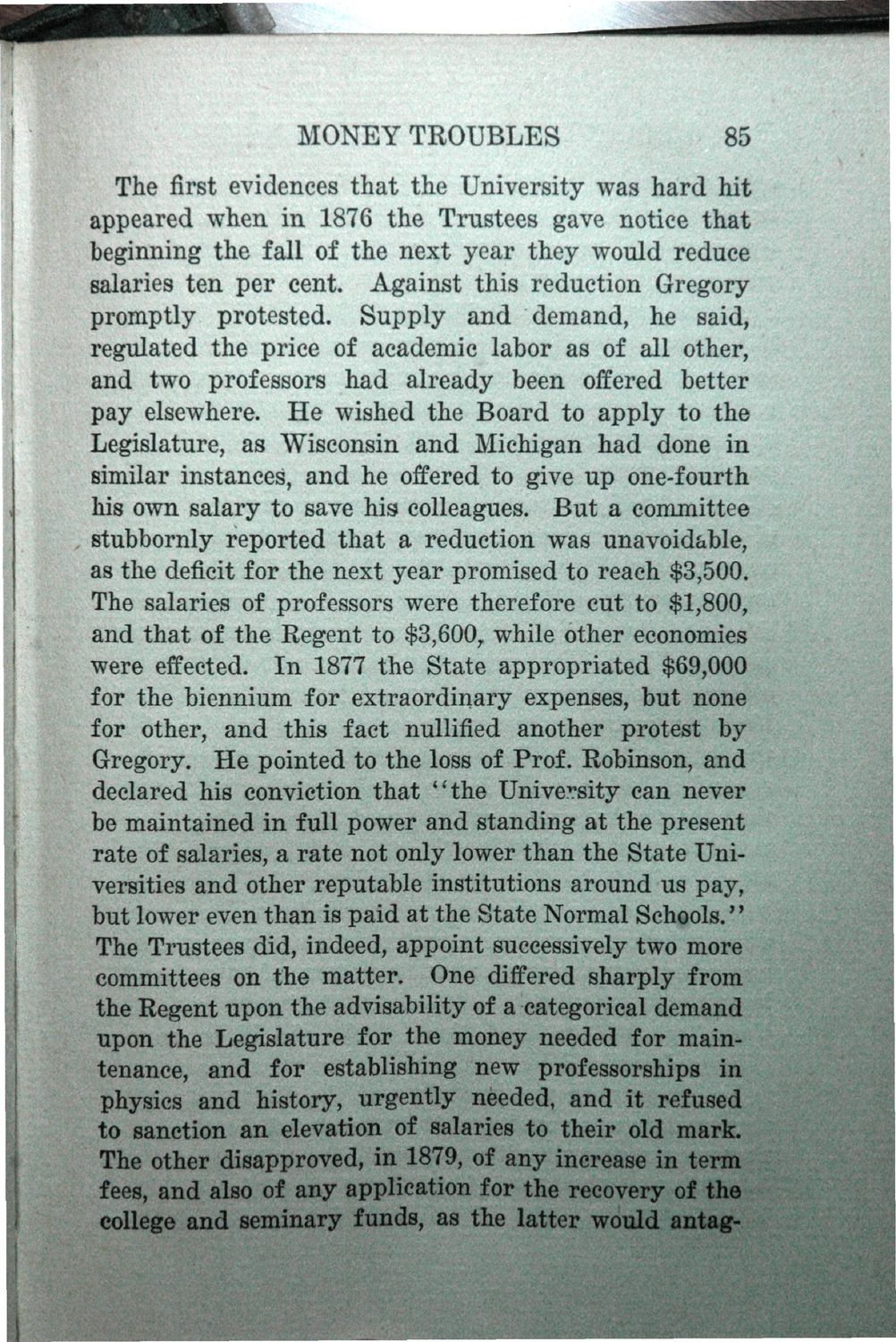| |
| |
Caption: Book - History of the University (Nevins)
This is a reduced-resolution page image for fast online browsing.

EXTRACTED TEXT FROM PAGE:
MONEY TROUBLES 85 The first evidences that the University was hard hit appeared when in 1876 the Trustees gave notice that beginning the fall of the next year they would reduce salaries ten per cent. Against this reduction Gregory promptly protested. Supply and demand, he said, regulated the price of academic labor as of all other, and two professors had already been offered better pay elsewhere. He wished the Board to apply to the Legislature, as Wisconsin and Michigan had done in similar instances, and he offered to give up one-fourth his own salary to save his colleagues. But a committee stubbornly reported that a reduction was unavoidable, as the deficit for the next year promised to reach $3,500. The salaries of professors were therefore cut to $1,800, and that of the Regent to $3,600r while other economies were effected. In 1877 the State appropriated $69,000 for the biennium for extraordinary expenses, but none for other, and this fact nullified another protest by Gregory. He pointed to the loss of Prof. Robinson, and declared his conviction that "the University can never be maintained in full power and standing at the present rate of salaries, a rate not only lower than the State Universities and other reputable institutions around us pay, but lower even than is paid at the State Normal Schools." The Trustees did, indeed, appoint successively two more committees on the matter. One differed sharply from the Regent upon the advisability of a categorical demand upon the Legislature for the money needed for maintenance, and for establishing new professorships in physics and history, urgently needed, and it refused to sanction an elevation of salaries to their old mark. The other disapproved, in 1879, of any increase in term fees, and also of any application for the recovery of the college and seminary funds, as the latter would antag-
| |